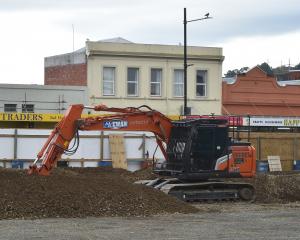Statistics New Zealand data provided to the Otago Daily Times showed record net gains in migrants for Otago (1507) in the year to February since at least 1992 - the first year for which figures were available.
Numbers were at record levels in all districts across the region, but the most pronounced jump was in Dunedin, where net migration increased by more than 500%, from the 128 in the year to February last year to 659 in the year to February this year.
The record net gains for other areas of Otago were 536 in Queenstown-Lakes, 125 in Waitaki District, 112 in Central Otago and 75 in Clutha.
The countries from which there had been the largest gains in Otago were Australia (280) and the United Kingdom (275).
The countries providing the most migrants to Dunedin were the United Kingdom (98), followed closely by China (97).
Mr Cull hailed the figures as excellent news for Dunedin.
''I think that's very encouraging in terms of what we have been trying to do with our economic development strategy and our greater city development strategy.
''Clearly we are getting something right if so many more people are recognising the advantages of coming [to Dunedin],'' Mr Cull said.
The rise was a vindication of efforts by the council, businesses and the University of Otago to make the city a better place to live and do business in, plus indicated job growth.
''The people that are coming are coming because they are attracted to something, whether that's a job, whether it's lifestyle, or the city offering,'' Mr Cull said.
Increased diversity also added to the city's vibrancy and international outlook.
''More and more we depend on selling our products elsewhere in the world ... and having people of different origins here can only help that,'' Mr Cull said.
Enterprise Dunedin director John Christie said having record numbers of migrants was a ''positive story'' and added to other anecdotal evidence the city's economy was growing.
However, without ''drilling into the data'' it was difficult to tell what might have caused the increase, Mr Christie said.
Enterprise Dunedin was waiting on economic data which would hopefully give more insight into how the city's economy was performing.
The Statistics New Zealand data provided to the ODT showed that in the period from February 1992 to February this year there had been 3134 more arrivals than departures in Otago, and 1978 more in Dunedin.
The figures for both Otago and Dunedin were heavily affected by a run of years in the late 1990s and early 2000s when there were significantly more departures than arrivals.
The gain of 1507 migrants for Otago in the year to February represented 2.7% of the 55,121 gain across New Zealand.
The New Zealand-wide gain has been put down to the nation's economic prospects looking brighter than those of many other countries.












